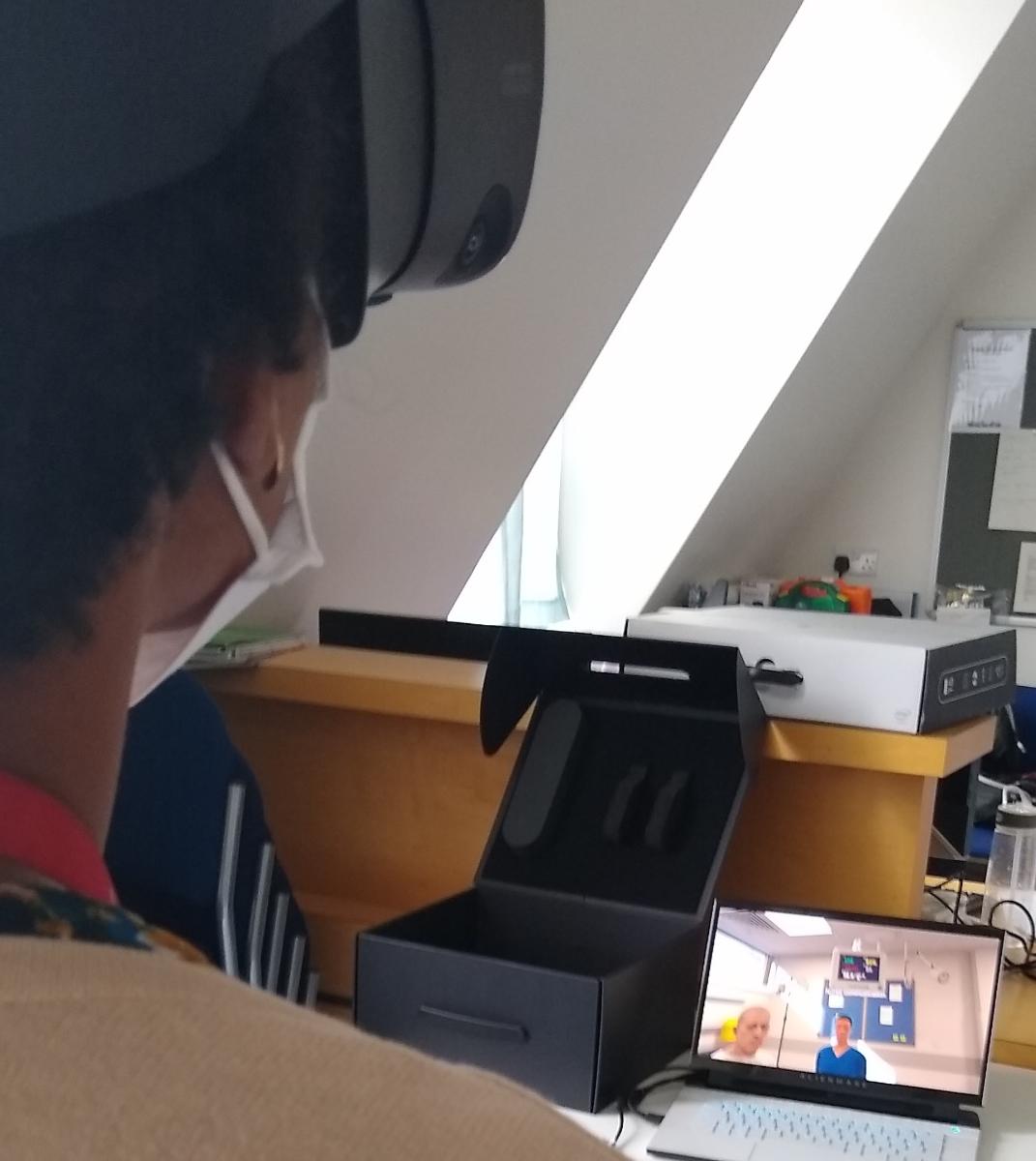Virtual reality helps simulation team tackle Covid-19

The simulation team at St Bartholomew’s Hospital is using virtual reality (VR) to train staff in a range of clinical procedures.
Delivered through VR headsets, this state-of-the-art technology enables nurses and doctors to practice complex procedures, clinical decision making and communication skills in a risk-free setting.
Bridging the gap between theory and practice, VR simulation has been widely adopted in surgical training where it has been shown to decrease injury, increase speed of operations and improve overall outcomes for patients.
Oxford Medical Simulation (OMS) worked with clinicians to design the system.
Programmed with over 50 different clinical scenarios, it focuses on skills that are difficult to learn or practice elsewhere.
The OMS VR system provides detailed feedback on how accurately procedures have been carried out and how well patients were managed. It offers users customised guidelines and uses a performance dashboard to track improvement over time.
It also provides the opportunity for group practice in which nurses and doctors can give each other feedback and guidance.
As well as increasing patient safety, the OMS VR mitigates face-to-face teaching, meaning practitioners can hone their skills in a Covid-free environment and maintain a safe distance from others.
Helen ‘Millsy’ Mills, simulation and essential clinical skills lead specialist at St Bartholomew‘s Hospital, said: “The Covid19 pandemic has emphasised the importance of simulation and its role in upskilling hundreds of staff quickly and effectively.
"Through VR, we're able to provide access to vital training safely and in accordance to social distancing rules.
"We're very excited to introduce the new system to colleagues."
For further information on this and other educational courses at the simulation department, including how to register, please email bartshealth.sbhsimandskills@nhs.net
